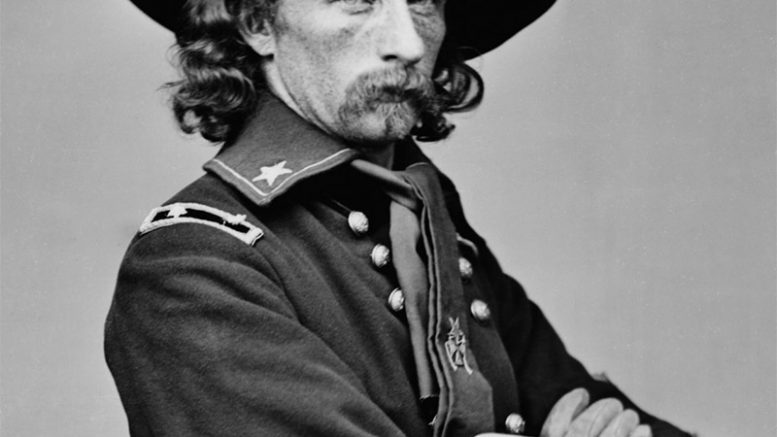Last week, a youth worker in the UK named Hannah Wilkinson tweeted an image from a textbook used today in this country for A-Level history. Students were asked “To what extent do you believe the treatment of native Americans has been exaggerated?”
Wilkinson asked “In what world is this is an acceptable question/exercise to ask students?” She added that she was “actually horrified.”
The text came from a book called “The Making of a Superpower: USA 1865-1975”, published by Hodder Education. The book has been in use for some six years, though the controversial passages have been highlighted only now.
The three authors of the book do point out that Native Americans did suffer at the hands of the European colonists, but added that some historians “have defended the policy of the federal government towards the Plains Indians. To those willing to adjust to the white man’s expectations, reservations offered chances for economic self-sufficiency. Others found off-reservation jobs. Most notable were Native American performers who toured with the Wild West shows. Buffalo Bill hired between 75 and 100 Native Americans during the 1880s.”
Wait — they’re actually citing Buffalo Bill’s Wild West shows as evidence that the treatment of indigenous peoples in North America was alright? Yes, actually, and it gets worse.
“There has been a tendency to glorify the Plains Indians,” they write. “However, they also fought brutally, slaughtering white settlers, sometimes torturing their captives to death. No prisoners were taken at Little Bighorn.”
Little Bighorn, as all A-Level history students in the UK are surely aware, was a battle fought in 1876 between a number of Native American tribes and the US Army’s Seventh Cavalry, commanded by General George Armstrong Custer. The battle was a massive defeat for the American army, and has gone down in history — for white people — as “Custer’s Last Stand”.
British students are supposed to be able to weigh both sides of the argument.
On the one hand, European colonists across the Americas had been engaged in a ruthless genocide against Native Americans since Columbus arrived in 1492. Almost all the tribal lands were stolen, native populations were decimated and forced into enclaves known as ‘reservations,’ and deprived of their most basic human rights and dignity.
On the other hand, some of them got to dress up as warriors and perform stunts for white audiences in Buffalo Bill’s Wild West show.
This is wrong on so many levels that the publisher, Hodder, has announced it is withdrawing the book from circulation.
One wonders what else appears in their textbooks. The three authors of this book have done other Hodder textbooks on subjects including “Weimar and Nazi Germany, 1918-39” and “South Africa, 1948–94: from apartheid state to ‘rainbow nation’”.
Perhaps those books encourage students to be open to all sides of a question — to see the positive aspects of national socialism and apartheid. Or maybe not — maybe only the genocide inflicted on Native Americans has been “exaggerated”.
Hannah Wilkinson asked “in what world” is this acceptable?
The short answer is that for some right-wing historians who are sick and tired about the constant criticism of our Western societies and history, angry about “political correctness” and worried about “woke” students and teachers “decolonising” the curriculum, this is all perfectly fine.
But for the rest of us, it is shocking beyond words.
This article appears in this week’s issue of Solidarity.
